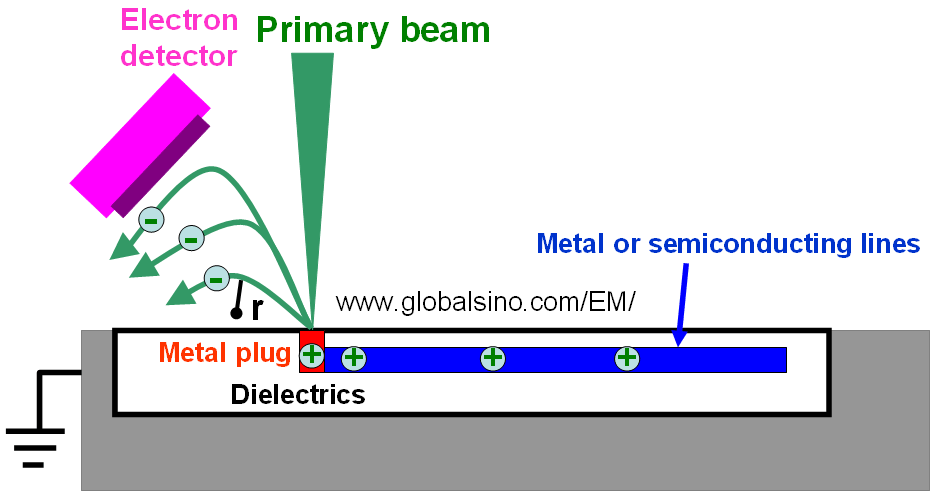=================================================================================
The planar area (A) and volume (V) of connected conducting and/or semiconducting materials affect the generation of passive voltage contrast (PVC) in SEM and FIB-secondary electron imaging. For instance, if the connected structure is very large the created charge is not enough to form an electrical potential to significantly affect the trajectory of the generated secondary electrons (SEs). In this case, the contrast of the structure stays bright similar to the structure grounded or stays grey as an electrically leaky contact.
By rough estimation, the radius of the curvature of the SE trajectory is a function of the planar area and volume of the structure (Figure 3849), given by,
r = r (A, V) -------------------------- [3849]
where,
A – The planar area of the connected conducting and/or semiconducting materials
V – The volume of the connected conducting and/or semiconducting materials
Equation 3849 indicates r decreases with A and V. The area A mostly affects the capacitance and electrical leakage of the connected structure, while the volume V mostly affects the charge density in the connected structures. That means, the SE trajectory bends more when A and/or V is smaller. Note that the larger the radius r the more the detected SEs and thus, the brighter the structure.

Figure 3849. Schematic illustration of the radius of the curvature of the SE trajectory.
|
